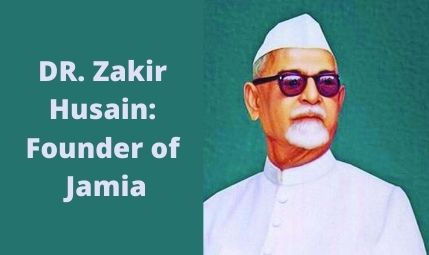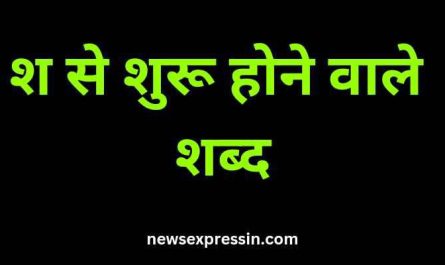Dhondo Keshav Karve, the founder of the first women’s university in India – SNDT Women’s University(Shreemati Nathibai Damodar Thackersey). He was also known as Maharshi Karve.
Dhondo Keshav Karve is a celebrated eugenicist who led from the front to bring about a society that values public health and welfare of human beings over self-interests.
About Dhondo Keshav Karve
Dhondo Keshav Karve was born into a farmer’s family in 1858. He was initiated into the mysteries of agriculture by his father who had taught him to plant seeds in a perfect way. After learning everything about agriculture, he went ahead and established a ‘Sarvajanik Farm’ which served the people with fresh vegetables at cheap prices.
In his quest to provide fresh vegetables to the poor farmers and villagers, Dhondo Keshav Karve established “Swadeshi Steam Navigation Company” which enabled poor people to go up on the sea and provide their goods at very reasonable prices.
Life of Maharshi Karve
Birth
Dhondo Keshav Karve was born in 1858, into a peasant family of a farmer in Pune. He got his name from Lord Maharshi Dhondo Keshav, who is credited with establishing the Great Indian Peninsular Railway Company(GIPR).
Dhondo Keshav’s father Srinivasa Karve was a farmer by profession. His mother Savita who died when he was very young. His hardworking father, who had been influenced by the Arya Samaj (the reform movement), made him learn to understand and appreciate nature and its importance to human beings.
Dhondo Keshav Karve’s upbringing as well as his recognition of nature’s sacred values were thus greatly influenced by his father.
His studies
At the age of six he was admitted to a school in Pune. He studied for seven years at this school and passed his matriculation examination with distinction in 1868.
Dhondo Keshav Karve then joined a college run by the Arya Samaj and received his BA (honors degree) from there in 1871. He also passed his MA and MSc examinations from there.
By the time he was 20, he had completed his studies with highest honors.
Personal Life
Dhondo Keshav Karve had a caring nature and as he grew up, he started giving more importance to the poor and underprivileged in society.
While he was busy with his studies, his father died. He did not marry and dedicated his life to serve the poor and the needy.
His compassionate nature led him to dedicate himself for the welfare of people. His first job was that of a tutor for seven years at Deccan College in Pune.
Career
In 1875, he started his career as a teacher in the same college where he passed his B.A. He taught there till 1877 when he was asked to take charge of a school run by British missionaries in Nagpur, Himachal Pradesh.
However, he was soon appointed as the Inspector General of Lands and Sub-Collector of Khandwa in Madhya Pradesh, where he served for four years.
In January 1882, Dhondo Keshav Karve returned to Pune. There he started a journal “Kesari” which was about the Arya Samaj movement.
Write autobiographies
Maharshi Karve wrote autobiographies that are regarded as classics and are used as the best example of autobiographies in India. The two autobiographies are “Kesari”, which was published in 1884, and “Shikshana-mahapatra” published in 1926. In these autobiographies, he describes his life from birth till death with no exaggeration.
In 1884, his autobiography “Kesari” was published by the Arya Samaj. This autobiography is written with a sense of purpose that is simple, straight forward and full of wisdom.
social work in field of women’s welfare
Maharshi Karve excelled in social service. He was the founder of a women’s school in India Sarvajanik Shrisidharshala (later known as SNDT Women’s University) and an institute for the blind.
He also started a magazine “Kesari” which gave publicity to his social service activities.
In his struggle to serve society, he had been an ardent follower of Mahatma Jyotiba Phule, who was the first Lok Sevak (revolutionary). Mahatma Jyotiba Phule was a nationalist and revolutionary leader who dedicated his life for the freedom movement.
Widow marriage
Dhondo Keshav Karve also took an initiative for widow remarriage, for which he was also ostracized. He and his wife had adopted a three-year-old girl who died of illness in their house.
Kesari became a powerful tool in the hands of Dhondo Keshav Karve. As more and more people came to know about his activities, his social service reached a new level of consciousness among the people.
For almost three decades Kesari was published under the editorship of Maharshi Karve.
Awards and honors
Dhondo Keshav Karve got the award of a Doctorate of Literature by the Kashi Vidyapith, Varanasi. He also got a medal from the governor of Bombay province.
Maharshi Karve was honored with the title “Maharshi” by the British Government in 1924. At the ceremony when this title was conferred on him, he asked for permission to wear only Khaddar (hand-made clothes) instead of western dress, which was denied by the government.
In 1925, he received an invitation from the Congress Party to attend their meeting at Nagpur. However, he refused to attend it owing to his political stand against Western civilization.
In 1942, he was awarded Doctor of Letters (D.Litt.) by Banaras Hindu University. Later in 1951 Pune University awarded him D.Litt. S.N.D.T. University awarded him D.Litt in 1954. In 1955, he was awarded Padma Vibhushan by the Government of India. Then, in 1957, he was again awarded an LL.D. by University of Mumbai. In 1958, he was awarded Bharat Ratna, the highest civilian award of India, by the Government of India.


